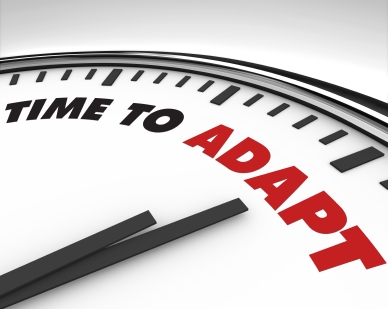 As I said in my last post, there’s an ongoing debate among lefty wonk types about neoliberalism, its discontents, and possible alternatives (if there are any). I want to be that annoying environmental guy and drag climate change into the conversation. First I’ll discuss a new paper on neoliberalism and climate adaptation, and then, in my next post, try to grapple with the larger, looming issue of growth.
As I said in my last post, there’s an ongoing debate among lefty wonk types about neoliberalism, its discontents, and possible alternatives (if there are any). I want to be that annoying environmental guy and drag climate change into the conversation. First I’ll discuss a new paper on neoliberalism and climate adaptation, and then, in my next post, try to grapple with the larger, looming issue of growth.
A new paper from Glenn Fieldman, a professor of political science and environmental studies, examines the connection between neoliberalism and climate change adaptation. It’s called “Neoliberalism, the production of vulnerability and the hobbled state: Systemic barriers to climate adaptation” (love those academic titles).
Fieldman argues, in a nutshell, that “the neoliberal system produces vulnerability to climate-induced (and other) changes and effectively incapacitates effective responses.” Adaptation policy is not something that can simply be tacked onto, or absorbed into, neoliberal development policy more broadly, because “development as presently conceived and practised is itself maladaptive.”
For one thing, Feildman argues, it has put workers in a perpetual state of insecurity:
Economic insecurity does not refer just to the failure of the neoliberal system to dent global poverty substantially, but also to the increasingly contingent nature of employment. Globally, surplus workers from all sectors are forced into competition for a limited number of jobs. As capital moves to exploit these surpluses, one day’s ‘winners’ may become the next day’s ‘losers’: maquiladora workers in Mexico lose jobs to China or Vietnam, while American information technology workers lose theirs to India or Malaysia. Periods of unemployment mean that most people have few opportunities to accumulate assets that would enable them to take anticipatory adaptation measures such as strengthening a house, or to rebuild lives disrupted by a climate-induced disaster.
Moreover, as Hoogvelt (2001) argues, hundreds of millions face a future of permanent social and economic exclusion as ‘a fundamental cleavage has opened up between, on the one hand, networks of capital, labour, information and markets … and on the other, populations and territories deprived of interest and value to the dynamics of global capitalism’. Those at the bottom of the global income scale are likely to remain there; they are ‘economically irrelevant’; many will never find formal employment. Despite the freedom of capital to move, the neoliberal order restricts the mobility of people. Even the option to migrate to escape climate-induced change is not available to those at the bottom of the global income scale, since most lack the special skills that would permit them to relocate legally.
For the state, the story is similar. It’s clear that “international climate funding” is and probably always will be grossly inadequate to the needs states face, both for basic background services (e.g., infrastructure) and climate-specific measures (e.g., building sea walls, restoring coastal wetlands). States need to be able to marshal their own resources to spend on resilience that benefits local populations. But neoliberalism, because it encourages capital mobility, leaves states in the position of competing for investment by lowering tax rates and removing tariffs, thus depriving themselves of revenue. “Neoliberalism,” Fieldman says, “has consequently put the social and much of the public-goods portions of state budgets on a strict, if not starvation, diet.” That includes climate-specific measures. To boot, states competing for corporate investment are loathe to constrain private-sector activities that increase vulnerability, like logging in erosion-prone areas or overshrimping for export.
Despite the fond dreams of some neoliberals, civil society is not going to be able to fill this gap. Resilience requires a robust, well-funded state and a citizenry that enjoys some employment stability and asset ownership. Neoliberalism, Fieldman argues, works against that.
In the end, big changes are necessary, but Fieldman’s handwaving on that front isn’t much more helpful than everyone else’s — something about Gramscian moments and counter-hegemonic projects. She does make a good case, though, that the currently dominant model of global development is pursuing macroeconomic efficiency at the expense of resilience. That doesn’t seem like a wise strategy heading into an age of uncertainty and upheaval.
Up next, the Big Kahuna of economic issues: growth!



